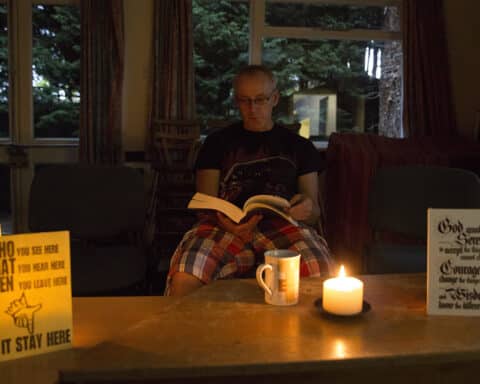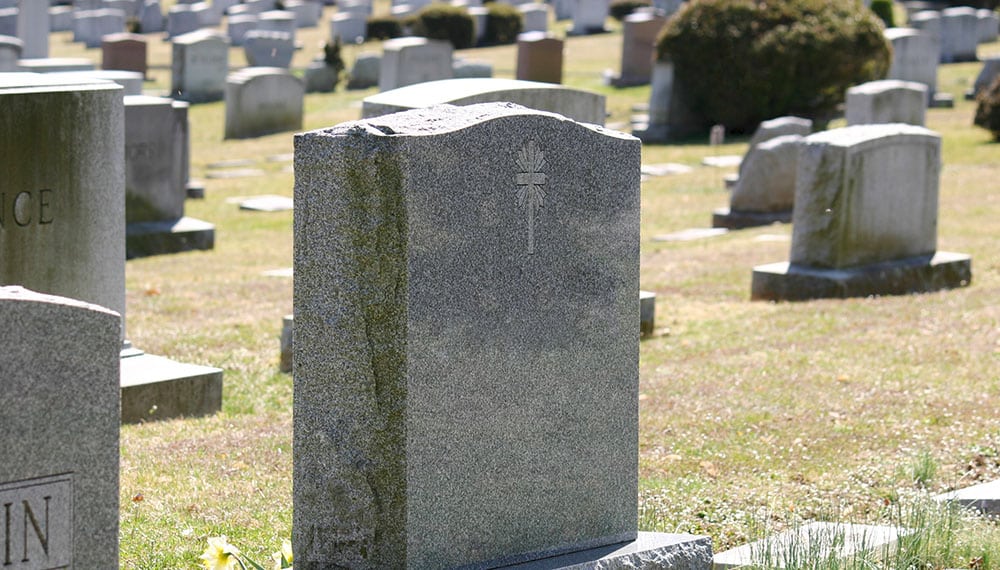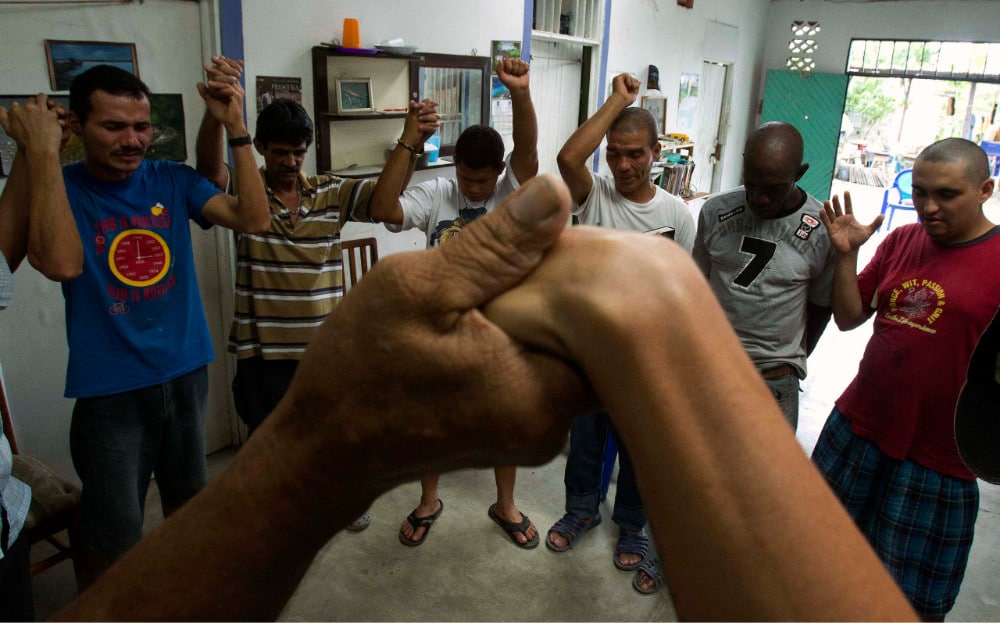In the very early morning of Dec. 16, 2002, I made an impulsive gesture that could have been a scene from a melodramatic B movie. I gathered all the bottles of bourbon, Scotch, gin and vodka in my house (there were many) and dumped their contents down the drain of the laundry room sink. That was the first of the 7,305 consecutive days that I have chosen not to take a drink of alcohol. It was the day after I had finally come to realize that alcohol was going to kill me, and very likely someone else along with me.
I have written before about my ongoing recovery from addiction to alcohol (although not for many years after that dramatic first day), and each time I have said that I don’t have all that much to say about it. That really hasn’t changed. Nor am I a good example of adherence to the principles of Alcoholics Anonymous, with its venerable Twelve Steps and Twelve Traditions. I have not been to an AA meeting since about the second year of my sobriety. And I have been scolded by AA purists for publicly disclosing my addiction, arguably in violation of Step 5 (“admit to God, to ourselves, and to another human being the exact nature of our wrongs”) and Tradition 12 (“Anonymity is the spiritual foundation of all our traditions”). This is not to diminish AA or the impressive effectiveness of “the program,” as it is known. I am a great admirer of Bill W. (William A. Wilson) and Dr. Bob (Robert H. Smith, M.D.), the founders of AA. The profound legacy of their tireless and selfless efforts should never be discounted. (I highly recommend the documentary film “Bill W.” for those unacquainted with the beginnings of AA.)
But as the story of every addict is unique, so is the story of every addict’s recovery. Mine has been rooted in the moral and spiritual traditions of my Catholic faith rather than the vague “Higher Power” of AA. I am moved by the moral courage of St. Monica, for example, who overcame her addiction to alcohol to become one of the great saints of the Church, as reported by St. Augustine. After being told by a rival that she was “a drunkard,” St. Monica, “pierced by this rebuke … looked upon her own uncleanness and immediately condemned it and cast it off.” St. Augustine notes, “Just as the praises of friends lead us astray, so too the rebukes of our enemies often set us back on the right path.” And I seek the intercessions of St. Martin of Tours, another patron of recovering alcoholics.
Under the volcano
Additionally, I have found more salient resources in literature and music than in the company of fellow addicts, or adherence to AA principles, vital as those things are to millions of people in recovery. For example, I have been profoundly affected by Malcolm Lowry’s magnificent and complex 1947 novel “Under the Volcano.” It is the story of one day in the life of Geoffrey Firmin, who knew he was an addict but who tried to negotiate with alcohol. Drawing upon Marlowe’s version of the Faustus myth, “Under the Volcano” is an account of the absolute obeisance that alcohol demands of its addicts and the inevitable fate of those who think they can bargain with it. For the alcoholic, gambling with drink is a winner-takes-all ruse. Alcohol takes every hand.
I have also found wisdom about alcohol addiction in the 1944 novel “The Lost Weekend” by Charles R. Jackson. This semi-autobiographical story is a pitch-perfect portrayal of the power that addiction can have over even well-intended people. Protagonist Don Birnam is an intelligent, thoughtful, sensitive man who seems to have a legitimate gift for writing. He is also supported by a loving brother and erstwhile girlfriend, whose attempts to help Don are sincere and well intended. But “The Lost Weekend” illustrates the ruthless and cunning deviousness even of good people who are caught in the clutches of addiction. The alcoholic’s inventiveness and ingenuity in hiding and finding another drink — and deceiving his loved ones — is well-practiced.
The main characters in both novels know that they are addicts, and at least one of them makes some halting steps to address his addiction. But the stories illustrate the grip that addiction, like other vices, can have on people, as well as the feelings of helplessness of those who love them. Nor does either novelist absolve his protagonists of moral responsibility. Birnam and Firmin both deceive a lover (in Firmin’s case, his former wife) and a brother, who want desperately to save them from their addiction. As the novels show, for those who love an addict, the sense of futility can be overwhelming.
I sobered up
Two expressly autobiographical songs by Americana artist and recovering alcoholic Jason Isbell also illustrate the complexity of addiction and the difficulty of loving an addict. In “Cover Me Up,” from his 2013 album “Southeastern,” Isbell exposes his own vulnerability as an addict and celebrates the perseverance of his wife in supporting him. “I put your faith to the test / When I tore off your dress / In Richmond on high,” he confesses. But he continues, “I sobered up, I swore off that stuff / Forever this time.”
“It Gets Easier,” from Isbell’s 2020 album “Reunions,” begins, “Last night I dreamed that I’d been drinking / Same dream I have ’bout twice a week / I had one glass of wine / I woke up feeling fine / And that’s how I knew it was a dream.” The addict knows that one glass of wine is both too many and not enough. But he also knows that the nonaddict literally cannot understand this problem, and that he cannot impute his addiction to others: “I can say it’s all worth it / But you won’t believe me / You can’t expect her to follow your lead / She’s fine with her wine and her weed / It gets easier, but it never gets easy.” As a character in “The Lost Weekend” perceptively notes, “You and I don’t realize it, because liquor doesn’t mean to us what it means to them.”
One day at a time
A bar scene in “The Lost Weekend” also illustrates the recovering alcoholic’s maxim that “one drink is too many and a thousand is never enough.” Birnam stops in the bar to have one shot to steady his nerves, after which he will get down to writing his novel, he tells himself. After one drink turns into several, Birnam ends up in the alcoholic ward of a psychiatric hospital, at which a clinician explains:
“There isn’t any cure, besides just stopping. And how many of them can do that? They don’t want to, you see. When they feel bad like this fellow here, they think they want to stop, but they don’t, really. They can’t bring themselves to admit they’re alcoholics, or that liquor’s got them licked. They believe they can take it or leave it alone — so they take it. If they do stop, out of fear or whatever, they go at once into such a state of euphoria and well-being that they become over-confident. They’re rid of drink, and feel sure enough of themselves to be able to start again, promising they’ll take one, or at the most two, and — well, then it becomes the same old story over again.”
This is why we recovering alcoholics measure our sobriety in days, not weeks, months or years. From subsequent interviews about “Cover Me Up,” Jason Isbell has acknowledged that the addict should avoid language like “forever this time.” One day at a time is enough. You must make this decision for this day. If you stick to that program, you might wake up one morning and find that it has been 7,305 days.
Kenneth Craycraft, an OSV columnist, is an associate professor of moral theology at Mount St. Mary’s Seminary and School of Theology in Cincinnati. Follow him on Twitter @krcraycraft.





